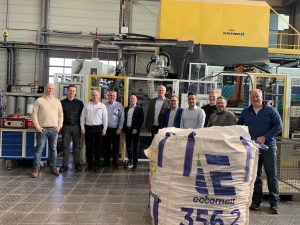In a span of two months, the aluminum industry took two major hits.
The first hit came on March 8, 2018 when the President of the United States Donald Trump signed the steel and aluminum tariff proclamations that levied tariffs on the metal imports. Only Canada and the United States were temporarily exempted. More than 60% of the overall supply of aluminum in the United States comes from imports, according to the Aluminum Association, citing 2017 data.
The second hit came on April 8, 2018 when the United States imposed sanctions on Rusal, a leading aluminum producing company in Russia. The sanctions forced aluminum prices to rise by 10%. Although the United States has since extended the deadline for sanctions, the future of aluminum prices is still unclear and the market was left in a volatile state.
Aluminum is a widely used metal in commercial, domestic, and industrial applications. In recent years, it has played an increasingly dominant role in the green economy. Its recyclability, high strength to weight ratio, and low cost (until now) has made it the material of choice by leading engineers.
The hardship aluminum has endured in the last two months has affected many consumers and businesses, namely these industries:
- Aerospace Industry
The American aerospace industry was one of the first to take issue with the tariffs on all imported aluminum and steel. The industry relies heavily on aluminum imports. According a recent U.S. Geological survey, 6,300 tons of aluminum was imported into the U.S. Domestic production of the metal was a fraction of this –coming in at 730 tons.
The aerospace industry fears that the tariffs will raise costs and disrupt the supply chain, which could ultimately put the U.S. competitiveness on a global scale at risk. They also fear a global trade war in which other countries would retaliate against American made products. As 2.5 million jobs rely on both steel and aluminum imports, industry experts fear massive layoffs.
- Auto Industry
The use of aluminum in automobiles and commercial vehicles is accelerating at a rapid pace. The main reason behind the push is aluminum’s properties – it offers the fastest, most environmentally friendly and cost-effective way to increase performance and improve fuel economy, in turn helping in the reduction of greenhouse gas emissions.
Any increase on the cost of aluminum imports could have an adverse affect on the auto industry, experts suggest. Automakers argue that they will be forced to raise costs of cars and trucks sold in the United States, which could mean a sharp decline in sales as well as a drop in shares on trading market.
- Consumers/Work Force
Consumers and employees of businesses that rely on aluminum imports will also be affected by the recent decisions made. The increased cost of aluminum is expected to affect the manufacturing of everyday products, such as soda cans, patio furniture, fences, car rims, and aluminum. This will likely lead to either an increase in product costs or a decline in products made in the United States. If the actions will result in fewer products being made in the United States, there will be fewer jobs available for Americans to take on.
- Construction Industry
The proposed sanctions and tariffs may also affect the construction industry, especially businesses that buy products directly from manufacturers. Price uncertainties about building materials made of steel and aluminum have already disrupted deal negotiations and planning processes for real estate projects. Any price increases probably will not make big disruptions, but contractors and real estate investors may choose to pass the costs along to future tenants. This may also give cues to property owners of existing buildings to increase their pricing too.
Is Eccomelt356.2, a Substitute for A356.2 Affected by the Tariffs and Sanctions?
We are pleased to inform our customers as well as prospects interested in purchasing Eccomelt356.2, a substitute for A356.2 ingot, sow, and t-bar, that it remains unaffected by the newly proposed tariffs. In fact, our product is proudly ‘Made in America” from locally sourced, recycled products. Our factory being based in Georgia ensures you an eco-friendly, economical, and good-quality delivery for a competitive price.
Our supply of Eccomelt356.2 will also remain unchanged by recent developments. Aluminum is indefinitely recyclable. This means that no matter how many times you reprocess and remold it, it will never break down or lose quality. Your used aluminum cans and rims will continue to be remade into other aluminum products for years and years…as long as it ends up in your recycling bin!
Eccomelt356.2 | Direct Substitute for A356.2 Ingot, Sow & T-bar
Alongside Alcan R&D, Eccomelt has developed a patented revolutionary process that produces a specification alloy from aluminum wheels at a lower cost than traditional methods and that meets that EPA definition of CLEAN CHARGE.
Eccomelt ships products to foundries within North America including the United States, Canada, and Mexico, and worldwide, such as France, Ireland, Italy, Serbia, and Spain. Our product is the material of choice for many consumers because it is chemically pure and environmentally-friendly. Its shredded form has achieved higher melting rates than Ingot, Sow or T-Bar. Environmental testing has also proven the process eliminates all coatings.
If you are an industry affected by the tariffs and proposed sanctions and looking for alternatives please give us a call. We can be contacted at (888) 356-9557 or visit our website and fill out our contact form.



